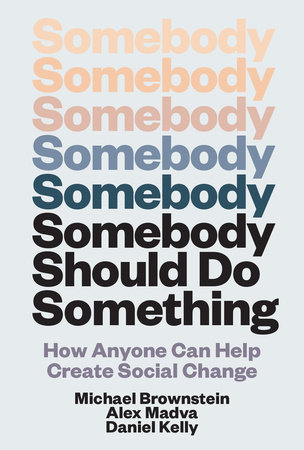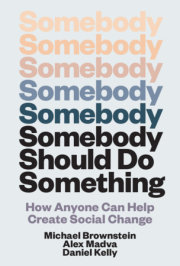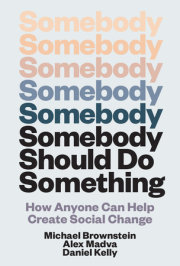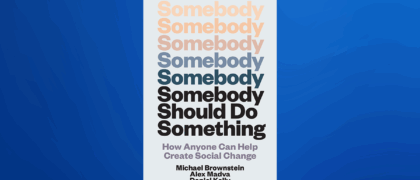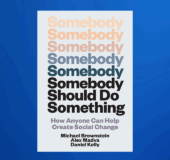The three of us spent a long time feeling stuck about what we could do about the biggest problems we collectively face, problems like climate change, racism, and yes, car culture. It seemed to us that we were being forced to choose between personal choices or systems and social structures.
This book is about getting unstuck. Our personal choices
do matter, just not the way we usually think.
Part of why it’s hard to see this is that would-be changemakers are constantly told they have to choose: change people or change systems. “You can’t save the climate by going vegan,” a
USA Today op-ed proclaimed in June 2019. “Corporate polluters must be held accountable.” This widely circulated essay argued that focusing on individual actions like what to eat and how to travel “distract from the systemic changes that are needed to avert this crisis.”
From our perspective, the authors are right that the climate crisis is only going to be solved with systemic change. They’re also right to be suspicious of putting the responsibility for change at the feet of individual consumers.
But the authors’ overall message falls short: They make what we shouldn’t do much clearer than what we should. “Don’t change lightbulbs,” they say, “change [the] energy system.” The first part of this message seems straightforward. Stop stressing over individual actions like how to light homes and stock fridges. Got it. But what to do instead? What can any of us do to hold corporate polluters accountable and overhaul energy infrastructure? The philosopher Robin Zheng put the crucial unasked question this way: “what is my role in changing the system?”
Lurking in the background of
USA Today’s op-ed—and behind the dominant cultural conversation about social change—is the portrayal of people as isolated from each other, with limited reach, able to adjust a few things here and there in their own personal lives but not much else. It highlights divisions rather than connections, boundaries rather than pathways of influence. It underlines opposition: real-deal change is taking down the car companies or fossil fuel industry rather than making changes in your own life.
We need a better picture, one that highlights how personal choices are connected to systems and structural change. We need a picture that foregrounds our most powerful personal choice: to work together with others. As the writer Bill McKibben put it about climate change, “the most important thing an individual can do is be somewhat less of an individual, joined together with others in movements large enough to make those changes on [a] more fundamental level.”
We need images and models and stories that help us see what kinds of personal choices merely make us feel good but are basically ineffectual, and what kinds actually have the potential to create transformative social change. This book assembles these images and models and tells many of these stories. It offers them in service of getting unstuck.
Copyright © 2025 by Michael Brownstein, Alex Madva, and Daniel Kelly. All rights reserved. No part of this excerpt may be reproduced or reprinted without permission in writing from the publisher.

